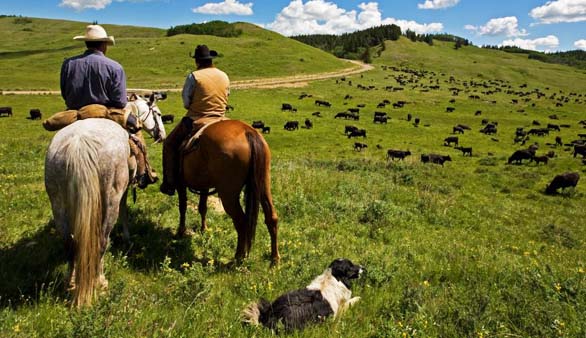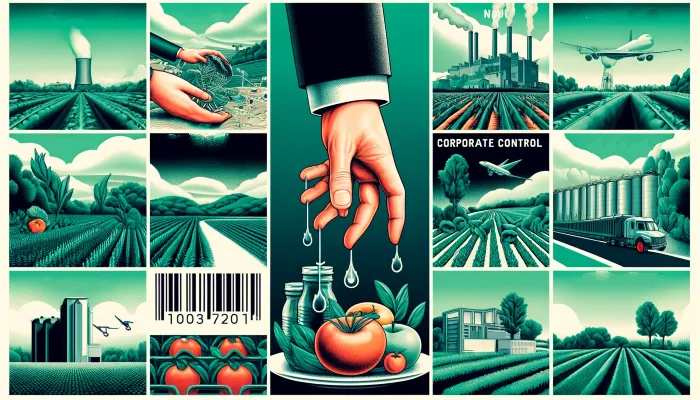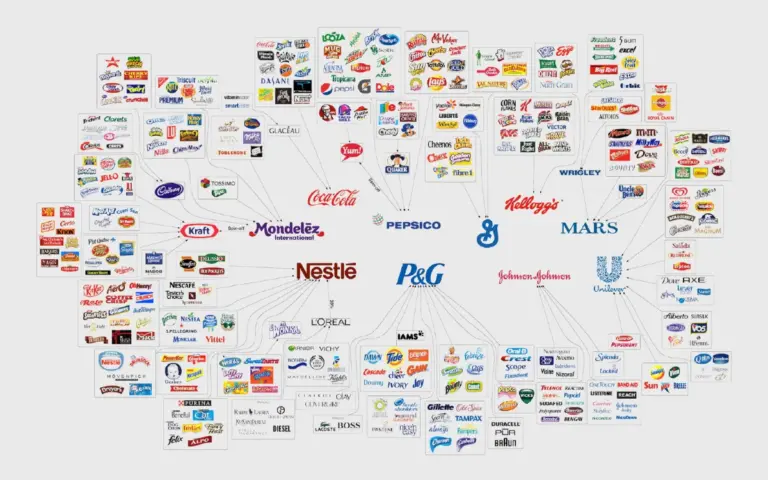Every Friday, ranchers around South Dakota gather at livestock auctions, such as the St. Onge Livestock auction, where their cattle are sold to the highest bidder. This traditional practice, rooted in a legacy of small-scale ranching, embodies the essence of competition and price discovery.
However, the American beef industry is facing a disturbing reality—one characterized by a lack of competition and the dominance of four major companies. This consolidation is not only jeopardizing the livelihoods of ranchers, but also impacting consumers and the environment.
The Journey from Ranch to Plate
To understand the impact of consolidation, let’s trace the path of cattle from the ranch to the meatpacking companies.
The process begins with cow-calf producers, like Matthew Kammerer, who breed cows and raise calves until they reach a certain age.
These calves then move on to backgrounders, who further nurture them until they reach a desired weight.
Finally, the cattle are sent to feedlots, like Ted Thompson’s, where they are fattened before being sold to meatpackers.
A Legacy of Fair Competition
For decades, livestock auctions served as the primary marketplace for ranchers to sell their cattle.
Auctioneers, like Justin Tupper of St. Onge Livestock, facilitated millions of dollars in sales, creating value through friendly competition. Ranchers would gather, engage in cordial conversations, and ultimately engage in bidding wars, all in pursuit of fair prices. However, the dynamics have shifted.

The Rise of the Big Four
The consolidation of the beef industry in recent decades has placed an unprecedented level of control in the hands of four major companies: Tyson, JBS, Cargill, and National Beef. These companies process a staggering 85 percent of all cattle produced in the United States.
While consumers may see a variety of brands in stores, these companies have acquired numerous smaller entities, creating an illusion of choice.
A Broken System
The concentration of power in the hands of the Big Four has disrupted the once-competitive marketplace. Unlike the open auctions experienced by ranchers, the sale between feedlot owners and meatpackers is largely orchestrated through contracts rather than competitive bidding.
The packers prefer fixed arrangements and full control over plant operations, limiting the opportunities for competitive pricing. This lack of competition stifles ranchers’ ability to negotiate fair prices for their cattle.
Impacts on Ranchers and Rural America
The consequences of consolidation ripple through the entire beef industry.
With fewer competitive bids, feedlot owners like Ted Thompson find themselves negotiating with limited options, resulting in potentially lower prices.
This, in turn, affects the backgrounder, such as Brad, who has less to offer to the cow-calf producer, like Matthew Kammerer. As a result, roughly 40 percent of cattle ranches have disappeared since 1980, eroding rural America’s economic backbone and dismantling generations of family legacies.
Environmental Concerns
The concentration of animal farms in the beef industry has given rise to large-scale, environmentally destructive practices. High-density feedlots, driven by the demand of corporate customers, contribute to pollution and emit greenhouse gases.
This shift towards consolidated operations has detrimental effects on the environment, compounding the challenges faced by the industry.
Calls for Action
Recognizing the urgent need for change, efforts are underway to address the lack of competition in the beef industry.
Proposed solutions include legislation to reduce contract sales between feedlot owners and meatpackers and to increase opportunities for new entrants into the market.
Enforcing antitrust laws, originally established to safeguard fair competition, is also a potential avenue to curb consolidation and protect the interests of ranchers, workers, and consumers.
Conclusion
The American beef industry stands at a crossroads, where the dominance of four major companies threatens the competitive spirit that once defined the market.
More To Discover
The consequences reach far beyond ranchers, impacting workers, consumers, and the environment.
As the government investigates these issues, there is hope for a future where fair competition is restored, enabling the preservation of family legacies, the revitalization of rural communities, and the sustenance of a more balanced and resilient beef industry.
Every Brand Owned By The Big 4
Cargill
- Purina
- Honeysuckle White
- Nutrena
- Sanderson Farms
- Crisco
- Diamond Crystal
- Ambrosia Chocolate Resource
- Merkens
- Maverick
- Shady Brook Farms
- TNT
- EWOS
- Leonardo Olive Oil
- Angus Pride
- Truvia
- Exel
- Preferred Angus
- Sterling Silver
- Horizon Milling
- Nature Works
JBS
- Swift
- Aspen Pride
- Pilgrim’s
- Great Southern
- Primo
- Moy Park
- 1855. G.F. Swift
- 5 Star
- 5 Star Reserve
- Aberdeen Black
- Acres Organic
- Clear River Farms
- Clear River Farms Premium
- Certified Angus Beef
- Chef’s Exclusive
- Country Pride
- Dak
- Creative Solutions
National Beef
- National Ground Beef
- Black Canyon
- Certified Angus Beef
- Certified Angus Beef Natural
- Certified Hereford Beef
- Natural Angus Beef
- HyPlains Heritage Farms
- Natural Beef Prime
- Iowa Premium Angus
- Est. 8 Angus
Tyson
- Jimmy Dean
- Hillshire Farm
- Hillshire Snacking
- State Fair
- Aidells
- Ball Park
- Raised And Rooted
- Nature Raised Farms
- Sara Lee
- Wright Brand
- Bosco’s
- Gallo Salame
- The Bruss Company
- Chairman’s Reserve


















